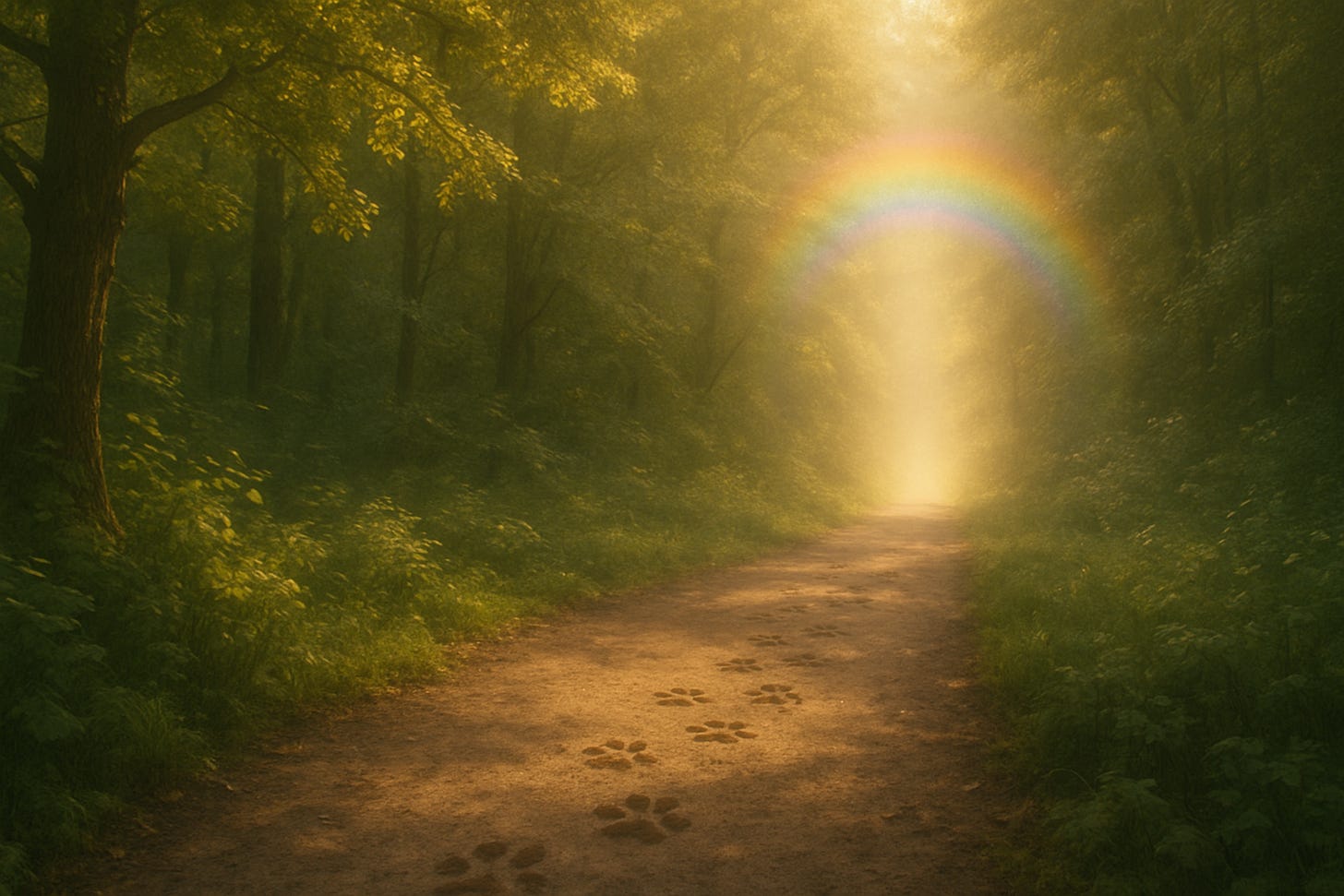The One Who Knew All My Secrets
On loss, love, and the quiet ways our pets stay with us long after they’re gone.
Jax came into my life when he was barely three weeks old. A tiny ginger kitten, all bones and curiosity, still learning how to stay steady on his feet. I could hold him in one hand without feeling the weight. His fur smelled faintly of milk, and his eyes were the cloudy blue of a creature who hadn’t been in the world long enough to know anything but trust.
From the first night, he made my chest his place. He would climb until he found the curve of my collarbone, settle in, and start purring with a sound that seemed far too big for his size. It was the kind of vibration you feel through your ribs.
Over the years, he became my constant. He followed me from room to room, sometimes close enough to trip over. He watched me cry without turning away. When I was sick, he stayed pressed against me like he could keep my body from breaking apart. I told him my secrets, knowing they would stay with him.
Fifteen years is a long time to share a life. I knew him better than I have known most people, and I believe he knew me just as well. He was woven into the fabric of my days so completely that I could not picture a world without him in it.
When he was diagnosed with cancer, I could feel time changing shape. The days became a practice in care, medications, natural remedies, soft blankets, and careful watching for signs of pain. I promised myself I would not let him get to a point where he was suffering, and he would not die in a place that smelled like bleach and fear. When it was time, my vet came to the house.
On his last day, he was in his place. On my chest, head tucked under my chin, purring until the medication took him into stillness. I felt his breathing slow, then stop. His weight stayed with me for a few moments, but it felt different, and I knew he was gone.
Pet grief is real grief
People often speak about grief as if it can be measured, as if the death of a pet could never match the death of a person. There’s an unspoken hierarchy of loss, and pet grief often falls to the bottom. This is what grief professionals call disenfranchised grief, grief that isn’t acknowledged, supported, or legitimized by society.
When your grief is invisible to others, you’re carrying more than loss. You’re carrying the loneliness of having it dismissed. Friends might avoid the subject because they don’t know what to say. Work won’t give you time off. Strangers might suggest you “just get another one,” as if the connection could be replaced like a broken appliance.
But here’s the truth: for many people, a pet is a primary attachment figure. They are the one you go to for comfort, the one who sees you at your most unguarded, the one whose presence regulates your nervous system. The bond can be as deep as, and sometimes deeper than, many human relationships. When you lose them, your brain and body react the same way they do to other major losses.
The absence of that presence is disorienting. Your routines change. The sounds you were used to hearing are gone. The part of your day you shared with them disappears. In some cases, the loss of a pet can also bring up old grief: the death of a person, a breakup, a change in identity, because your body stores every goodbye.
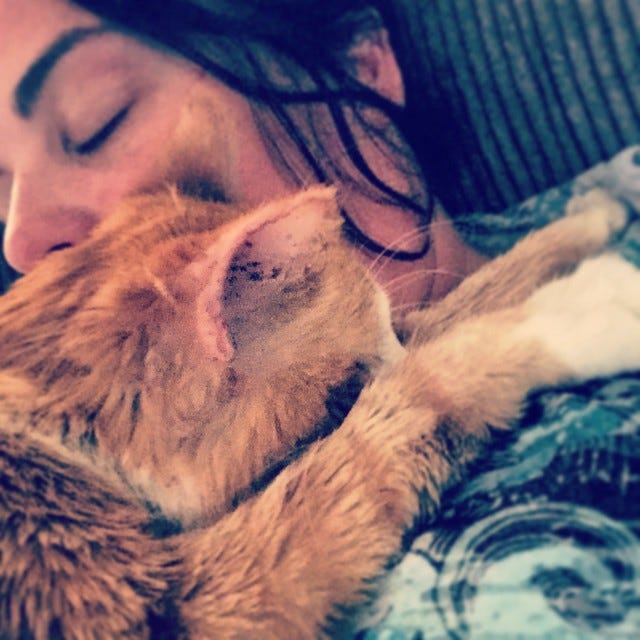
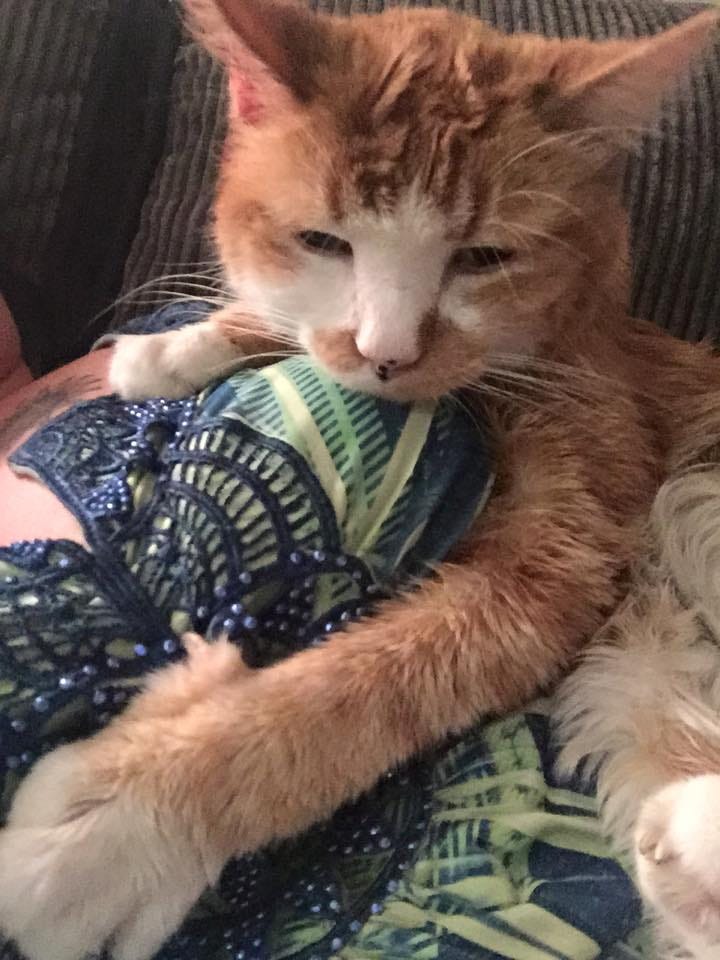
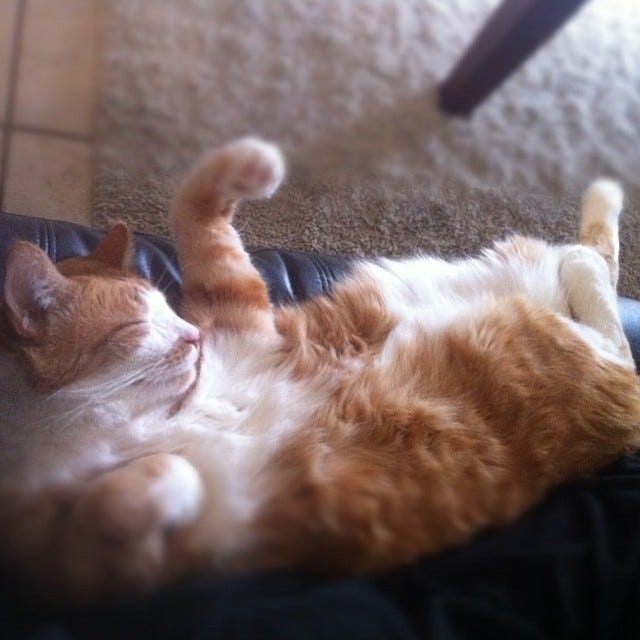
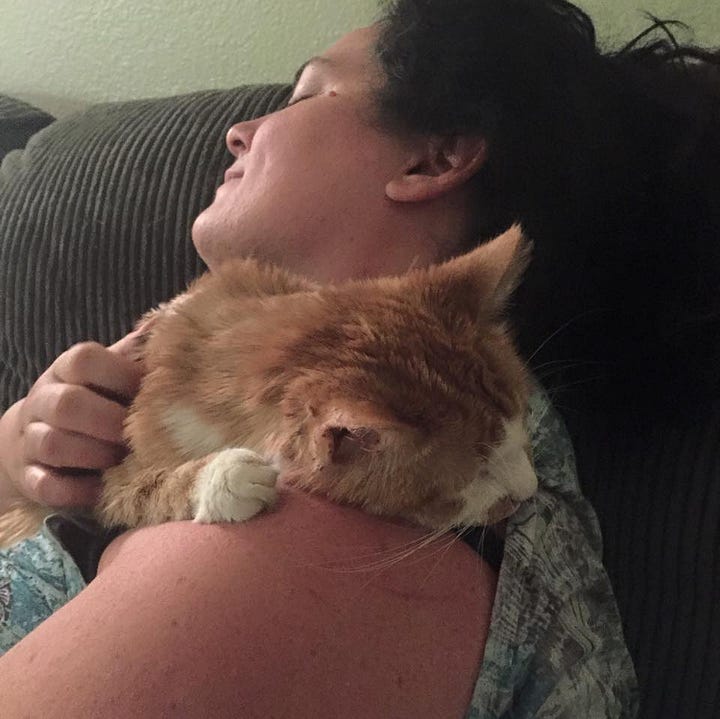
How grief shows up
After Jax died, I thought I was prepared. I wasn’t.
The silence was the first shock. I would come home and pause, expecting to hear him at the door. I’d catch a shadow in the corner of my eye and turn, ready to see him in his favorite chair. His food dish stayed out for weeks, because putting it away felt like erasing him.
There was guilt, too. The kind that whispers in the dark. Did I wait too long? Did I act too soon? Could I have done more? Euthanasia can be the most loving choice we make, but it’s also one of the hardest to live with.
Grief didn’t fade on a schedule. It resurfaced on the day he died, on the day I brought him home, and on random afternoons when the light fell across the couch just the way it had when he used to nap there. It came up when I met new animals, because love and loss live close together.
The cat who found me
A few months later, I thought I might be ready for another cat. I went to the shelter and found a ginger who reminded me of Jax. I held him, and for a moment, it felt right. But I told the staff I needed to think overnight.
By morning, I knew it wasn’t the right time. I called to say I wouldn’t be coming.
That night, while taking the trash out, a small stray cat walked straight toward me. No fear. No hesitation. I looked for his humans, but no one claimed him. After a few days, I knew he was mine.
I believe Jax sent him. In the ten years since he has been gone, two more cats have arrived in my life in unexpected ways. They each have their own place in my heart, but Jax’s place is his alone.
Why rituals matter
When your grief is minimized, rituals give it shape and weight. They are a way of saying, “This mattered. This still matters.”
You might:
Create a memorial space with their photo, collar, and a candle you light when you miss them.
Write them a letter about what you’re grateful for or what you hope they know now.
Plant something in their honor. A tree, flowers, or herbs they would have liked to nap beside.
Donate or volunteer at a shelter in their name.
Keep a ritual they loved: a sunny nap spot, a short walk, a shared treat.
Mark anniversaries with intention: light a candle, look through photos, speak their name.
You get to find ways to carry love forward into a new shape.
For you, and for them
If you’ve lost a pet, I invite you to speak their name here. Share a story or a photo. Tell us what made them unforgettable.
Let this space be more than an article. Let it be a gathering place. A memorial garden we tend together. A reminder that grief for an animal is not small, and it is not less.
Because they were never “just” anything. They were part of you. And in some way, they always will be.
Love today,
Heather 🌸


